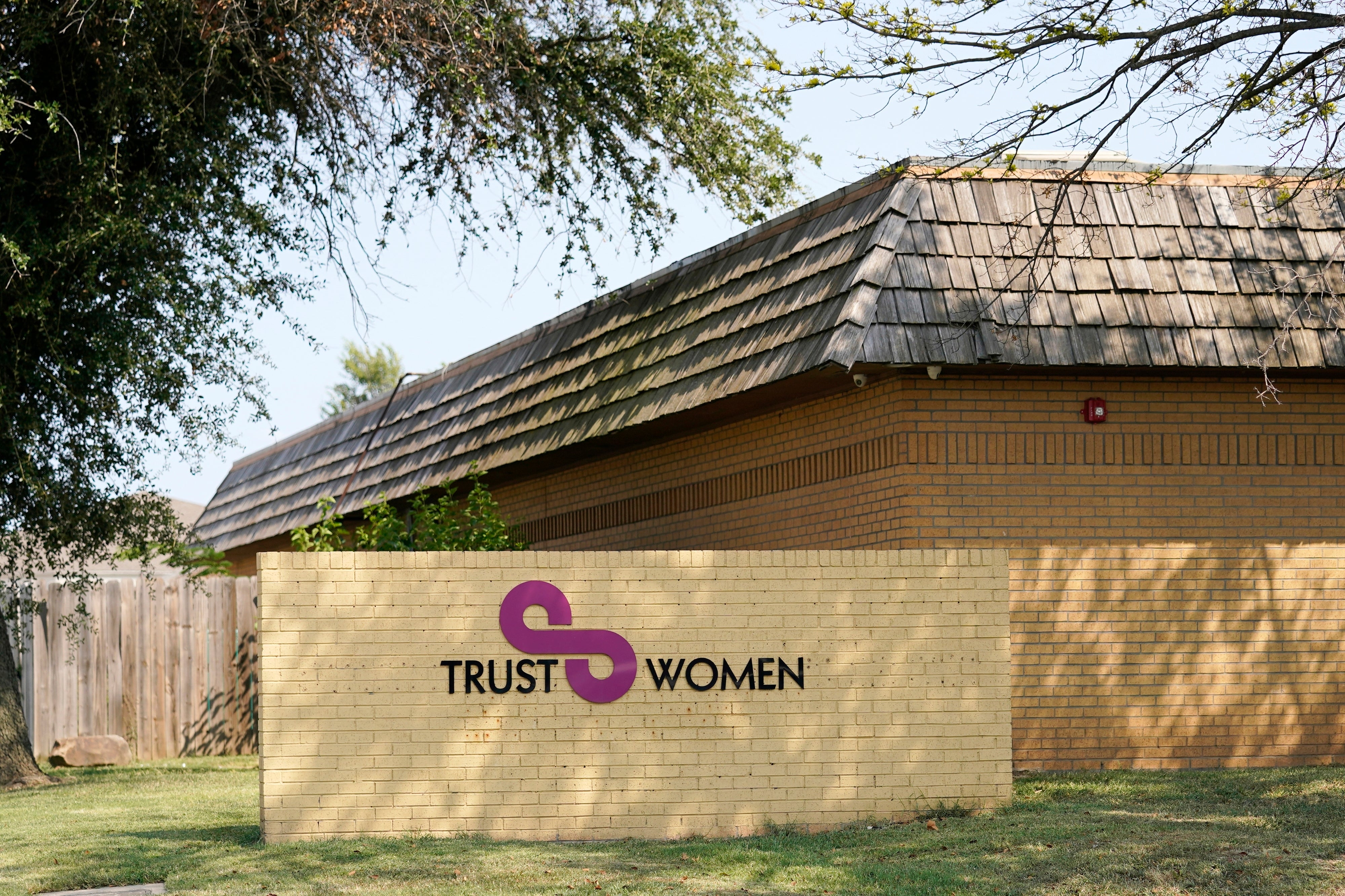Kansas clinic temporarily halts abortions after leadership shakeup
A Kansas women’s health clinic that has often served as an epicenter of conflict over abortion rights has temporarily stopped offering the procedure

A Kansas women's health clinic that has often served as an epicenter of conflict over abortion rights has temporarily stopped offering the procedure, exasperating a strain on services in one of the few states in the region still allowing abortions.
The move this week at the Trust Women clinic in Wichita followed a leadership shakeup that was outlined in an article published Thursday by the reproductive rights-focused publication Rewire News Group.
Trust Women's board acknowledged what it described as a “leadership transition” in a statement but said it wouldn’t discuss the details for privacy reasons. The statement said it also was making changes in medical protocols.
“These were not decisions that were made because of anything nefarious,” said Sapphire Garcia, who was elected president of Trust Women’s board of directors last week, in an interview with The Associated Press on Friday. “These are things that, are in line with our evolution and our growth as an organization and any responsible organization that offers clinical care in a moment of transition like this must take a pause.”
She declined to discuss whether physicians had resigned and estimated that the pause in abortions would last days to maybe a couple of weeks.
Trust Women opened the Wichita clinic in 2013 in the same facility where Dr. George Tiller, a Wichita abortion provider, practiced before an anti-abortion extremist murdered him in 2009. Tiller and the Wichita clinic where he had performed late-term abortions had been a target for decades; it was bombed in 1985, and Tiller was shot in both arms in 1993.
Julie Burkhart, a former employee of Tiller, said she is distraught over what is happening at the clinic she founded before leaving to to run clinics in Wyoming and Illinois. “Heartbroken, upset, tied in knots. It’s hard to watch that,” she said.
Mackenzie Haddix, the deputy communications director for Kansans for Life, said the halt was “extremely concerning and raises a lot of questions.”
Garcia said Trust Women was able to reschedule its abortion patients. Two other clinics in the city also offer abortions.
After Roe v. Wade was reversed, Kansas was the first state where voters weighed in on abortion at the ballot box, resoundingly rejecting a constitutional amendment that could have led to an abortion ban in August 2022. Since then, the state — which now prohibits abortions after 21 weeks of pregnancy — has become a destination for people from more restrictive nearby states seeking abortion.
“Kansas providers are already strained to meet an overwhelming need, and any further disruption will affect patients’ ability to access critical and time-sensitive care,” said Hanna Sumpter, director of communications and marketing at Planned Parenthood Great Plains.
Trust Women, whose Oklahoma clinic stopped providing abortions because of a state ban, typically receives between 3,000 and 4,000 phone calls each day — most from patients requesting abortion appointments — at a time when it’s only able to see 40 to 50 patients per day, a spokesperson told the Kansas News Service in December.
Garcia said she didn't think there had been any changes since then in the numbers.
“We’re grateful to be moving forward together in a direction that considers how we can expand services," she said. "But to do that, we have to make responsible, measured decisions. And that is what this reflects, that we have proactively moved to pause abortion services very temporarily.”
Bookmark popover
Removed from bookmarks